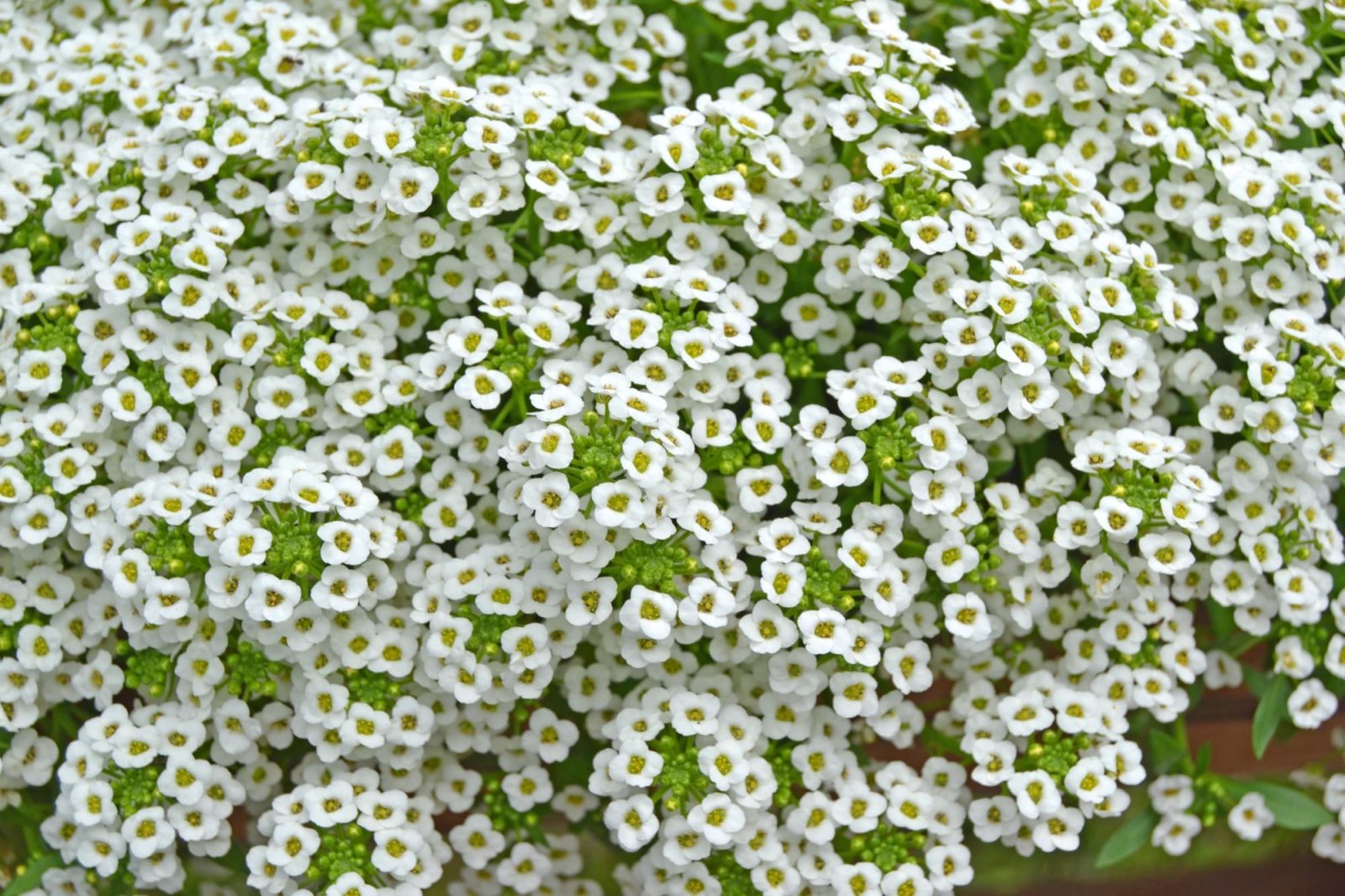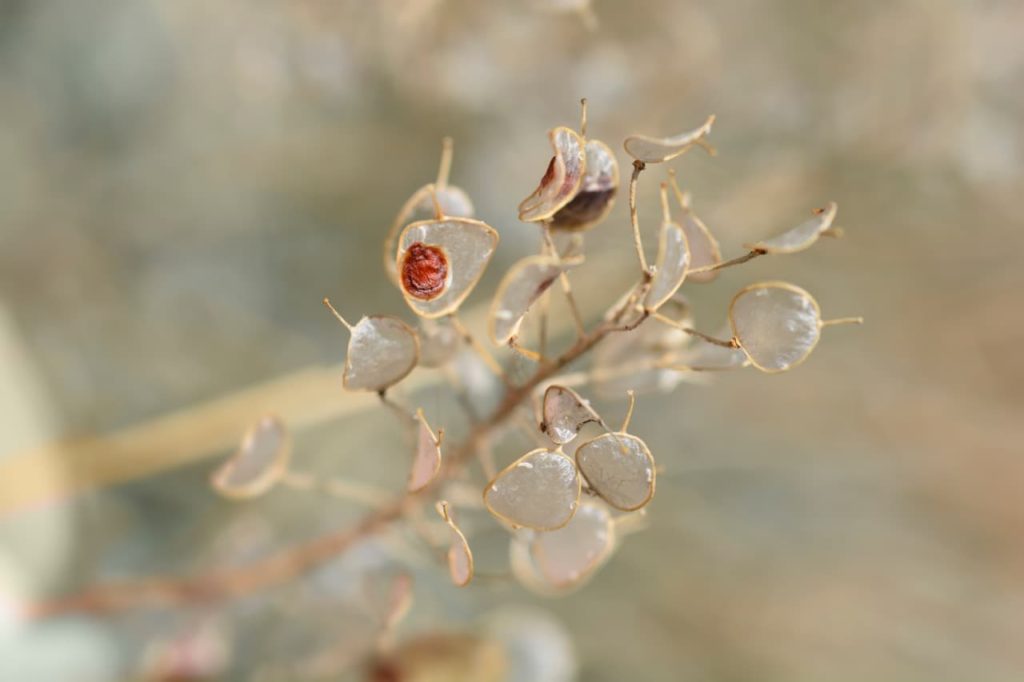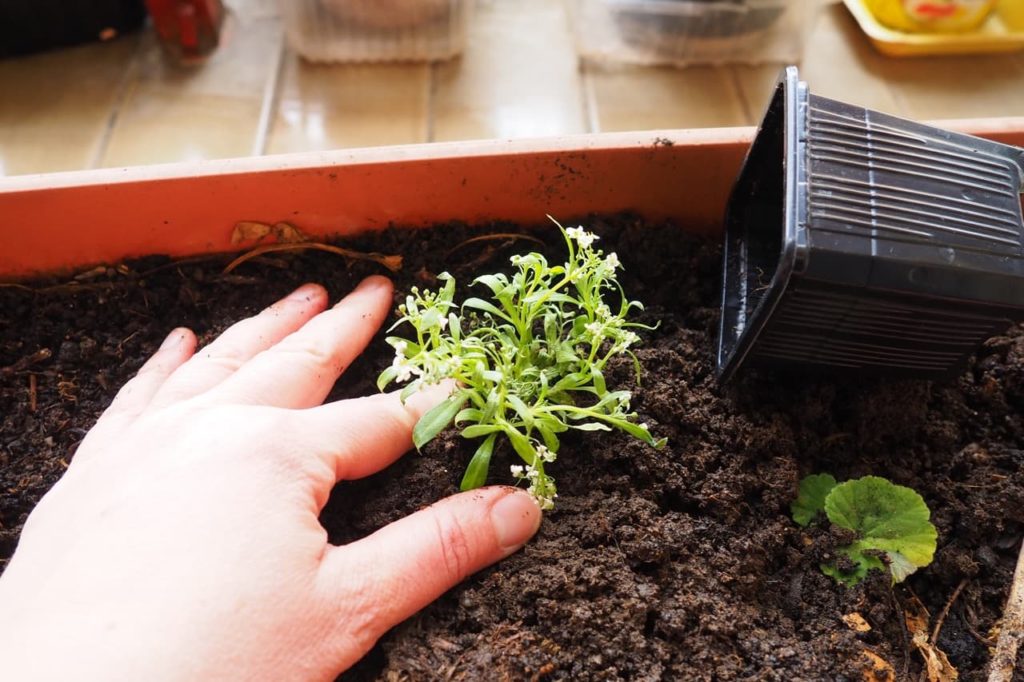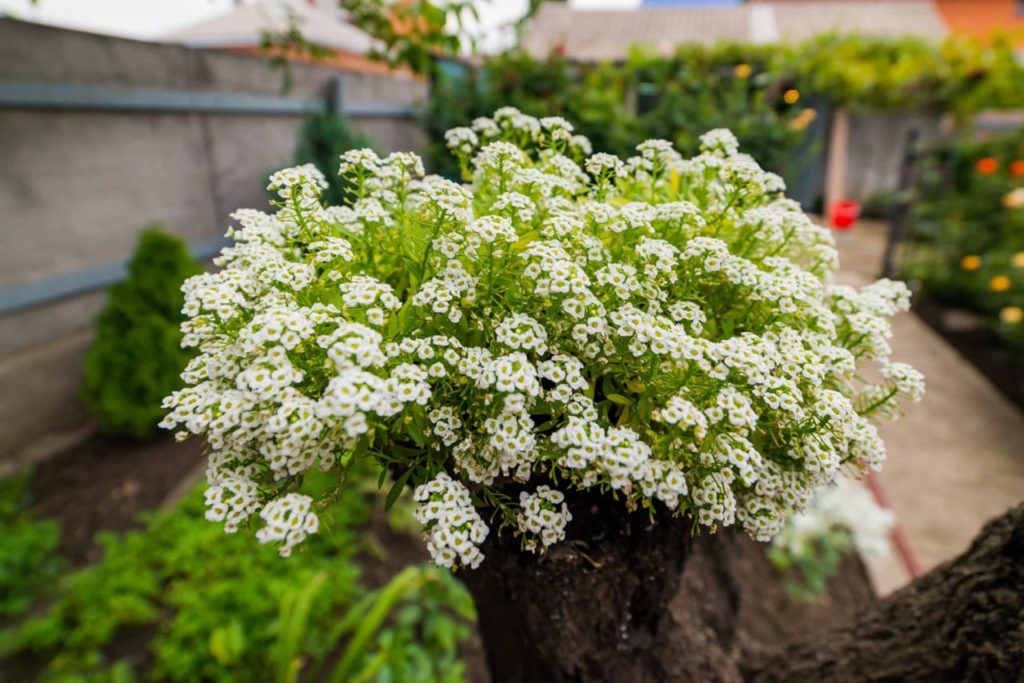Alyssum Sown In Early Spring Should Germinate Quickly And Flower Later That Year


Elizabeth is a Permaculture Garden Designer, Sustainability Consultant and Professional Writer, working as an advocate for positive change. She graduated from the University of St. Andrews with an MA in English and Philosophy and obtained a Diploma in Applied Permaculture Design from the Permaculture Association.
Reviewed By DAN ORI

Dan has over 27 years’ under his belt caring for plants and gardens. Working as a Horticultural Instructor and Consultant, he draws on a diverse range of experience that includes working as a Head Gardener, Tree Surgeon, Garden Centre Trouble Shooter, and writer of academic papers. Dan has a Level 3 Diploma in Horticulture and is currently a candidate for the RHS’s most prestigious award – The Master of Horticulture.
IN THIS GUIDE
ALYSSUM GUIDES
Sowing
Known as Alyssum or ‘Sweet Alyssum’, Lobularia maritima is an attractive flowering plant that is wonderful for growing in pots or at the front of beds or borders.
It works well amid other ornamental flowers and can also be a good companion plant for a vegetable garden by providing ground cover and drawing in pollinators and predatory insects to aid in pest control.
Fortunately, this is a plant which is very easy to grow from seed.
This is a great plant for new gardeners and for growing with kids, with a simple process and relatively quick rewards.
| Difficulty | Easy |
| Equipment Required | Seeds, seed trays or pots, growing medium, unheated greenhouse or cold frame |
Alyssum is best sown inside in late February or March.
To grow Alyssum from seed:
- Fill seed trays with a peat-free seed-starting compost.
- Sow Alyssum seeds indoors in early spring.
- Prick out and pot on your seedlings, allowing them enough space to properly establish.
- Harden off and plant out your Alyssum in May.
Read on for a slightly more in-depth outline of this simple gardening job.
1) Prepare The Seed Trays
Fill seed trays with a peat-free, seed-starting compost that is moist but free draining.

You can purchase a seed-starting compost or make your own, but make sure that it is adequately aerated and light.

Ensure that the seed trays have been cleaned thoroughly to reduce the chances of fungal issues taking hold.
2) Sow Alyssum Seeds
Sow seeds on the surface of the tray and cover over very lightly with a thin layer of compost.
Water the seedlings using a sprinkler rose on your watering can to avoid washing away the seeds.
Place the trays in a light, bright location on a sunny windowsill and wait for germination to take place.
Your seeds should germinate within 1-2 weeks at the most.
Gardening expert Dan Ori shares that as the seeds are tiny, he likes to sow Alyssum in damp compost, covering it with a thin layer of vermiculite instead of compost.
When he waters, he waters from below using a tray allowing the compost to soak up what it needs.
3) Prick Out Seedlings

Prick out the seedlings when they are about 2cm tall and place them into individual pots in another covered seed bed around 5cm apart.
4) Harden Off & Plant Out In May
Harden off and plant out the seedlings where they are to grow in the garden in May.

Gradually move the plants for longer and longer periods to a cold frame or unheated greenhouse or polytunnel before moving them outdoors fully, to acclimatise them to the outdoor growing conditions.

Plant out Alyssum in a spot with full sun in reasonably well-drained soil.
Alyssum will make a good companion plant around the edges of a bed full of a range of spring vegetables.
So, if you’ve never done it before, be sure to consider growing some of your own food a go at the same time as growing Alyssum from seed.
